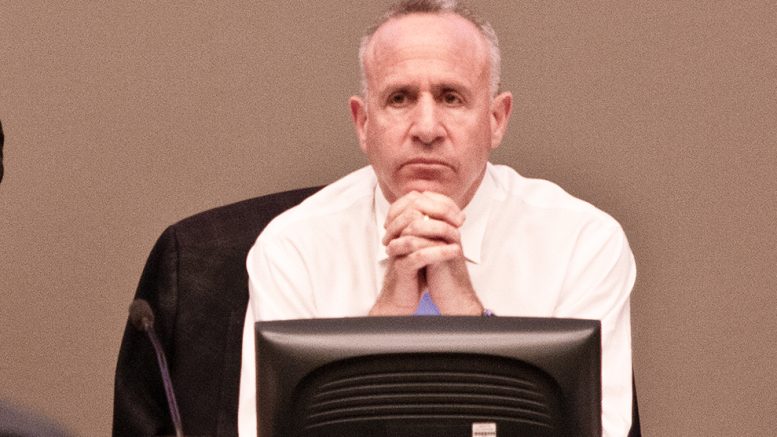“Strong mayor” is back before voters and the stakes are high
Both sides on the “strong mayor” measure say the future of Sacramento is at stake.
Mayor Darrell Steinberg and the coalition of business and labor groups behind him say that Measure A will transform the city for the better by giving its only citywide elected leader the tools needed to keep campaign promises, quickly respond to constituents and push ahead on priorities such as improving disadvantaged neighborhoods and decreasing homelessness. (The pro campaign picked up the support of the Sacramento Regional Coalition to End Homelessness.)
“Sacramento needs an accountable leader who is empowered to act in times of emergency, who has the ability to implement reforms when change is needed and who can fight for budget priorities that advance equity and economic progress,” says their official ballot argument.
But the opponents—led by community activists and neighborhood leaders, and also including the city firefighters union and three City Council members—say Measure A will change Sacramento for the worse by taking influence away from neighborhoods and giving more to developers, unions and big-money special interests.
“It is a power grab, plain and simple,” says their official ballot argument. “More power will not make the Mayor more effective in solving city problems. More leadership and collaboration with the City Council will.”
Steinberg, who won a second term in March, added a two-term limit for the mayor to the measure. So if it passes, he would have the additional power for only four years. But he says this will be his last term whether Measure A passes or not.
UPDATE: In an Oct. 21 legal opinion, however, the city attorney’s office says the term limit doesn’t apply to Steinberg.
“Sacramento needs an accountable leader.”
Ballot argument for Measure A
Under the proposed charter change, the mayor would propose a budget and could veto line items in the budget, as well as ordinances passed by the council, subject to an override by a two-thirds vote of the council. A ninth council seat would be added in the 2022 election after the drawing of new districts based on the 2020 Census.
Also under Measure A, the mayor would appoint the city manager, with confirmation by the council, and could also remove the manager. If the manager is not removed for cause, the council could block the dismissal on a two-thirds vote.
While City Manager Howard Chan isn’t taking a public position on the measure, he has objected to supporters’ argument that the “the buck stops with the city manager.”
“This simply is not true,” he wrote in an op-ed for Inside Sacramento. “As city manager, I report directly to all nine councilmembers, which includes the mayor. They can direct me in any way they see fit, and they do so on a regular basis. They hired me and they can fire me. I am accountable to them. That is the system.”
“To suggest my actions do not represent the will of the council or that the council is not the highest authority not only does a disservice to the councilmembers, it does a disservice to voters as well,” Chan added.
The proposed measure would also require the city to evaluate the impact of budget decisions and ordinances on promoting racial, ethnic, gender and LGBTQ equity and on helping small businesses. While supporters say it’s a big deal to have the equity provisions written into the city charter, opponents say they are vague and were included only to attract votes.
And Measure A would require that the city invest at least $40 million a year in “inclusive economic development,” with at least 25% going to youth services, with a priority on those impacted by poverty and violence. The firefighters warn that the budget carve-out will put fire and emergency medical response at risk of “dangerous reductions” for “unclear priorities and unproven ideas.” Steinberg says while he usually doesn’t like “ballot-box budgeting,” this is an exception to keep his promise for inclusive economic development.
“It is a power grab, plain and simple.”
Ballot argument against Measure A
The two sides also disagree on the measure’s timing. “Strong mayor” supporters say it’s clear that the mayor needs more authority after the police reform protests and the COVID-19 economic crisis further exposed inequities in Sacramento—and a governance structure unable to fully meet those challenges.
But opponents say it makes no sense to rush such a fundamental change—the plan was first made public July 23 and put on the ballot Aug. 4—during a deadly public health crisis.
UPDATE: In campaign finance reports as of Oct. 17, the yes campaign had spent more than $1.1 million, while opposition groups reported spending $242,000 but having $52,000 in cash for the final weeks.
In 2014, 56% of Sacramento voters rejected the “strong mayor” measure put forward by then-Mayor Kevin Johnson. And even if Measure A passes, voters will face the issue again, in 2030 at the latest.






Be the first to comment on "How should Sacramento be governed?"